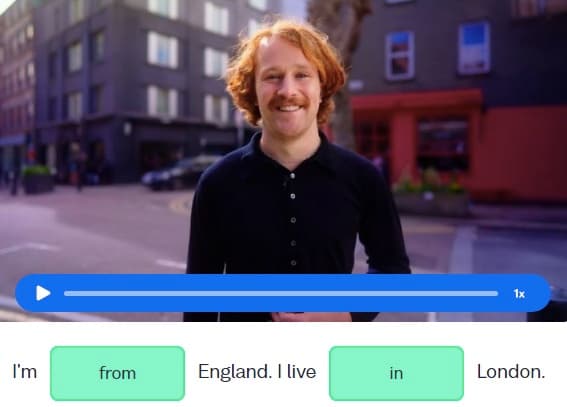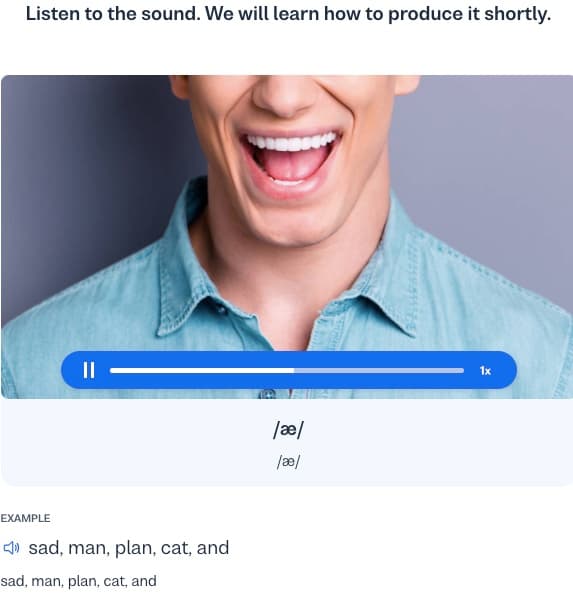I want to learn...
Author:

Barney Meekin
For such a small country, there’s a huge amount of variety in British accents. There are so many regional accents crammed into such a small place. choosing one to learn can be confusing. Should you learn to speak like a Northerner or Southerner? Do you want to speak like a BBC presenter? Or are you really brave and want to learn a Glaswegian accent?
This handy guide will teach you everything you need to know about British accents, how they compare to each other, and give you some practical tips for your own language learning.
Understanding different British accents
Let’s take a look at the different accents in the UK, their differences, and how they compare to American accents.
British English: Received Pronunciation (RP)
When you think of a British accent, you probably think of received pronunciation. Received Pronunciation is the standard form of British English pronunciation. It’s also called Queen’s English or BBC Pronunciation. People often associate RP — and its clear and concise pronunciation — with the English upper class. RP is most common in London and the southeast of England. Check out this video to give you an idea of how RP sounds like.
Interestingly, although RP is the pronunciation most associated with the UK (and the pronunciation taught to English language learners), most English speakers don’t use RP. Estimates say fewer than 3% of the UK population use RP, which is a tiny percentage of worldwide English speakers.
North vs South England accents
One of the biggest differences is between accents from the north and south of England. Northern accents have short vowel sounds. Southern accents have longer vowel sounds.
Let’s look at the word “bath” for example. In Northern accents, it has a short vowel a-sound like in “cat”. In southern accents it has a long a-sound like in “father.” But, to be honest, a north-south divide doesn't give you the whole picture when it comes to UK accents. As you’ll see, even accents in the North (or South) vary a lot.
British regional accents
Spread across England, Wales, Scotland, and Northern Ireland are dozens of regional accents. Here are some of the big ones (with some videos so you can hear the real thing).
1. Estuary English
This is a common accent in London. It sits in the middle of RP and the working-class accents of the South East. In Estuary English, some l-sounds sound similar to w-sounds. Check out this video and hear how this accent sounds.
2. Scouse
People in Liverpool speak Scouse (check out this video to hear how this accent sounds) which is possibly the most unique accent in Britain. It’s only spoken in the Liverpool area and has little relation to any other British accent. For example, th-sounds can sound similar to t-sounds, and k-sounds are fricatives (a sound made by blocking airflow).
3. Yorkshire
This northern accent is famous for its glottal stops (a speech sound produced by a quick release of air produced by the vocal cords) instead of t-sounds and for its missing h-sounds at the start of words. Check out this video and listen to some Yorkshire accents.
4. Geordie
People in Newcastle speak Geordie. P, t, and k-sounds often become glottal stops (or rapid vocal cord closure and release of air) in Geordie. And the long vowel sounds in words like “wake” are a long e-sound. Listen to how this accent sounds in this video.
5. Glaswegian
This Scottish accent from the city of Glasgow is notoriously difficult to understand. There are many glottal stops for t-sounds in the Glaswegian accent too. Speakers sometimes drop d-sounds from the ends of words.
6. Northern Irish
This is the standard accent that people from Northern Ireland (obviously) speak. The intonation differs slightly, with some statements ending with a rising intonation (i.e. the voice goes up at the end of the phrase)". And the d-sound in words like “hand” is silent. Listen to this accent in this video with the actor Kenneth Branagh speaking with a Northern Irish accent.
These are just a small sample of all the regional accents in the UK. This list shows that although the UK is a small country, there is a lot of variation in the accents. Of course, this causes challenges for language learners but at the same time makes learning British English interesting.
Good to know: British pronunciation vs. American pronunciation, what’s the difference? Check out our
How to master a British accent
Here are some practical tips for learning a British accent:
1. Start with the standard
If you want to learn British English, you should start with RP. It’s the standard so everyone can understand it (it’s also the easiest to learn). For most language learners, that’ll be enough.
If you want to live and work in the UK, you might need to understand a regional accent too (but don’t worry about this until you really need to). For example, if you take a position working in Glasgow, you will need to understand the Glaswegian accent. But studying the Glaswegian accent won’t be of much use if you want to join a university in the south of England.
2. Listen and imitate
The first step to understanding a British accent is to immerse yourself in the sounds and rhythms of British English. Watch British movies or TV shows and listen closely to the sounds the characters make. You can also use Busuu’s Video Bites to hear British speakers talking about a range of topics. Pay attention to the intonation, stress, and rhythm of their speech. Try to mimic their accent by repeating sentences or phrases out loud.
3. Get feedback
It can also be helpful to record yourself speaking English and listen back to identify areas for improvement. It will sound strange at first, but you'll get used to your own voice.
Also, don't be afraid to ask for feedback from native speakers or language experts in the Busuu community. This kind of feedback will help you achieve your goals.
4. Be consistent
Regular and consistent practice will help you master British pronunciation. Speak in a British accent, read aloud in a British accent, and sing songs in a British accent. And do it as much as possible.
Start by setting aside 15 minutes per day (every day) for pronunciation practice. Keep this up and you’ll understand the rhythm of the accent. And your mouth will get used to making the sounds.
Get started learning a British accent
When you’re starting out, you can listen to your British friends or native British speakers that you can meet in the Busuu community, who can help you develop your pronunciation as you get feedback through corrections with intonation and pronunciation in British via the Busuu's Conversation Exercises.
There’s a whole bunch of interesting regional accents you could start to learn (if you want or need to). Because, if we’re being honest, not many people speak Received Pronunciation. It might be the image of a British accent but it doesn’t reflect real life in the UK. So, follow the tips in this article, and enjoy the process of learning the unique accents of British English.
AUTHOR

Barney Meekin
Newlanguages


